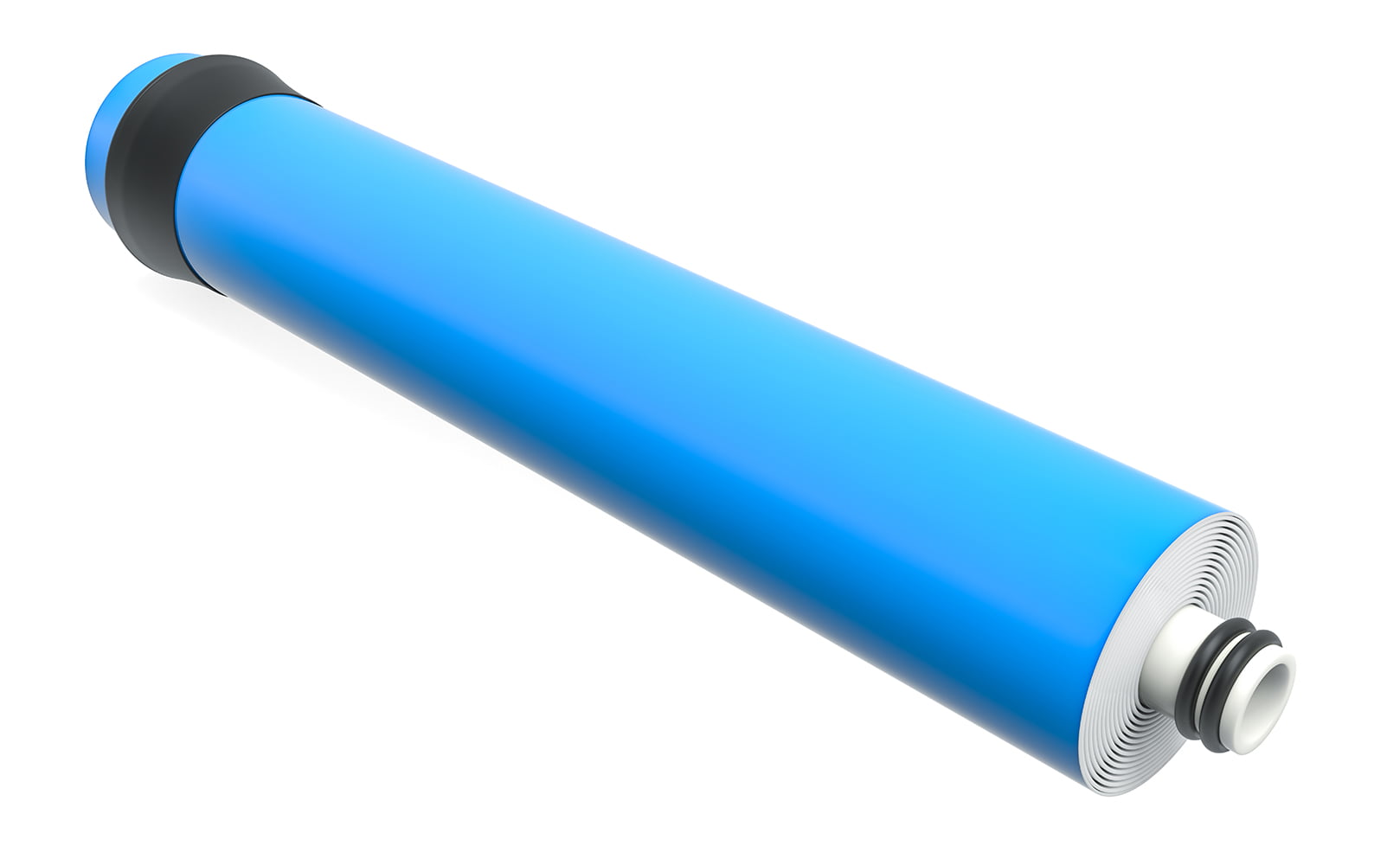Is Purified Water the Same as Reverse Osmosis Water?
Written by: Gene Fitzgerald // Last Updated: Jun 2, 2023
This page may contain affiliate links. If you buy a product or service through such a link we earn a commission at no extra cost to you. Learn more.
What is purified water? What is reverse osmosis water? Is purified water the same as reverse osmosis water?
Find all the answers in the article below!
Key Takeaways
- Reverse osmosis water is one type of purified water.
- Reverse osmosis water is produced through reverse osmosis purification, while purified water can be produced using different methods, including distillation, deionization, and filtration.
What Is Purified Water?
According to the EPA, purified water is water from any source that has been treated to become chemical-free. Chemical-free means the TDS content does not exceed 10 ppm (parts per million).
Another definition of purified water is that it’s free from microorganisms.
What Is Reverse Osmosis Water?
Reverse osmosis water refers to water that has been treated using a reverse osmosis membrane. Because it’s essentially contaminant-free, RO water is usually a much healthier choice than tap or raw well water.
RO water can be produced at home with a reverse osmosis system or purchased from RO dispensaries or bottled water companies that sell RO water.
Is Purified Water the Same as Reverse Osmosis Water?
So, is purified water the same as reverse osmosis water?
Purified water and reverse osmosis water can be the same, but they don’t have to be.
As mentioned, reverse osmosis water is obtained from reverse osmosis purification, while purified water can be produced using different methods, including reverse osmosis. Other ways to purify water include distillation and deionization.
Now, reverse osmosis water can be classified as purified water, but this isn’t always the case. Ordinarily, RO water is very pure. But some factors can affect RO water quality, making it less pure.
For instance, if the feed water has excessive TDS levels, the permeate water coming out of the reverse osmosis process can very well have TDS concentrations exceeding 10 parts per million.
Other factors that can affect RO water quality include feed water pressure, age and condition of membrane and other filters, feed water temperature, etc.
Purified vs RO Water – Which Is Better?
Generally speaking, purified water and RO water are both pure and safe to drink. But because several factors influence RO water quality, one could say that purified water may just a bit purer than reverse osmosis water.
However, it’s important to note that when making these comparisons, the healthier drinking water is always the one with fewer harmful contaminants.
For instance, heavy metals like lead are always harmful in drinking water, while impurities like calcium and magnesium are beneficial. If purified water and RO water contain small amounts of impurities, the better option will be the one that contains less harmful contamination.
Differences
The main difference between purified water and reverse osmosis water is in how they’re produced.
Reverse osmosis water is produced solely through reverse osmosis purification, while purified water can be obtained from different methods, including distillation, deionization, and filtration.
- During distillation, water is heated to its boiling point, and the water vapor moves into a condenser to cool. Since most impurities do not evaporate with the water, they are left behind in the boiling chamber. The vapor turns to purified liquid in the condenser and is stored in a reservoir. Distillation removes up to 99.99% of impurities from water.
- During filtration, water passes through a filter media to remove contaminants. Different filter media are available, but activated carbon is most commonly used in homes. Carbon filters are highly adsorbent and trap impurities on their surfaces. They remove lead, VOCs (volatile organic compounds), chlorine, and other contaminants from water.
- Deionized water is free from common ions that contaminate water. One way deionization works is with an ion exchange resin.
Advantages of RO Water
RO water is beneficial in different ways. Let’s see some advantages of RO water.
- Contaminant-free drinking water: Although tap water goes through municipal treatment, it may still contain contaminants that could ruin your drinking water experience. RO water is mostly free from contamination and protects you from waterborne diseases associated with contaminated tap water.
- Drinking water tastes better: RO water is free from those contaminants that cause weird tastes. It tastes noticeably better than tap or well water.
- Promotes hydration: Access to clean, refreshing RO water can encourage you to drink more water.
- Saves you money: Buying bottled water all the time is expensive. Using an RO system saves you a lot of money in the long run, despite the initial cost of purchasing the system.
- Safer than bottled water: This may come as a shock, but bottled water isn’t always filtered. Some bottled water companies simply sell regular tap water. Using RO water is the safest way to ensure that your drinking water is always of good quality.
- Environmentally friendly: RO water eliminates the need for bottled water, making it the more environmentally-friendly option.
Advantages of Purified Water
Purified water has similar advantages to reverse osmosis water. The major advantages of purified water include:
- It’s safe to drink: Purified water is free from harmful contaminants, hence safer to drink. It reduces the risk of catching waterborne diseases.
- Minerals remain intact: Unlike reverse osmosis, other water purification processes do not remove essential minerals. These nutrients are beneficial to the body.
- Improves hydration and helps in weight loss: Purified water tastes refreshing, and this can motivate you to drink more water. Drinking more water has also been linked to weight loss.
If you have any thoughts about the question, is purified water the same as RO water, please don’t hesitate to leave a comment below!
Information provided on BOS is for educational purposes only. The products and services we review may not be right for your individual circumstances.
We adhere to strict editorial guidelines. Rest assured, the opinions expressed have not been provided, reviewed, or otherwise endorsed by our partners – they are unbiased, independent, and the author’s alone. Our licensed experts fact-check all content for accuracy. It is accurate as of the date posted and to the best of our knowledge.



